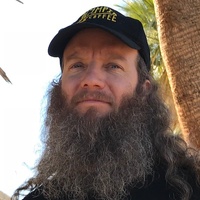On finding clarity through creative work
Prelude
Cathy Park Hong is the author of Engine Empire, Translating Mo’um, and Dance Dance Revolution and has won a Pushcart Prize and the Barnard Women Poets Prize. She is the poetry editor of The New Republic and is an Associate Professor at Sarah Lawrence College.
Conversation
On finding clarity through creative work
The writer and poet discusses the evolving relationship between art and poetry, art as documentation and witness, and the importance of creating work now that can be processed later.
The art world and the poetry world were much more entwined back in the day. But even though poetry’s not tied to the market the way the art world is, it’s tied to academia and those institutions—I guess it’s the prize economy. It’s almost Confucian, where as a poet, you don’t make a living based on selling your poetry, but you’re able to get by if you’re anointed and get a grant or a prize. Then you get a faculty position and then you need to get tenure and so forth… That’s its own sort of system that keeps a poet in place and well-behaved.
But poets in the last few years stopped behaving as much. This was the case with poetry and the literary world even before Trump was elected. I want to make sure that people don’t forget that. I think of what was happening within the last two years with Ferguson and Black Lives Matter. They were making a real impact in the arts, where people were questioning racial inequities, both in terms of the judicial system but also in the arts and publishing.
It’s happening right now. A lot of books that have been published, and that have been getting attention, are works that are not only by writers of color or female writers or queer writers, but writers that deal with injustice in a really difficult and interesting way, rather than in sort of the past pious way that we’re used to. Now, I don’t know if everything that was happening within the last two years will be completely abandoned or the movement will just get stronger. But it was already in place.
Part of it, I think, was just sort of politically what was happening in the landscape, but I think it’s also maybe younger poets didn’t care as much about the system. I think social media also has a lot to do with it. I never thought this would be the case, but there are poems that are going viral. Poems that are impassioned political poems by poets of color and so forth.
With social media, you’re able to actually get a readership without going through this rarefied system. Because of that, I think poets have more freedom to do what they want because they’re not tied to the economy where they have to sell a poem for $200,000 or anything like that.
I’m not in the art world necessarily, but I’m friends with a lot of artists who are always complaining about this. I’m curious to see what artists are really going to do. After I gave the talk honoring Julie Ault at Triple Canopy about resistance, I was talking to this one gallerist. She worked at a gallery in the Lower East Side and she was like, “I totally believe in everything that you were saying but in all practicality, I don’t know how it’s going to be possible because artists have to make a living. They need to eat. How are they going to do that if they do an installation and so forth?”
Right now artists especially, and also writers, are panicking. I think a lot of us are questioning what is the efficacy of our work? What is the efficacy of this poem that I’m writing? How relevant is it going to be? Is it even worth writing? Or if you’re painter, you’re thinking, how is this painting going to matter? Or it suddenly seems completely disconnected from a government that’s going to be run by a demagogue.
Visual artists are caught in this bind. They’re in this deregulated market. In fact, probably though, a lot of them will benefit from Trump. If Trump gives tax cuts to the rich, it’s going to trickle down to the artists and the institutions… So what do you do about that?
I think it’s important to remind ourselves that it’s not just the objects we make, but the process in which we make that object. I think during this time, there’ll be more room for more collaborative efforts. People working together. Artists are already doing that right now, but I think there is going to be more of that, or there should be more of that. I think that’s what artists are craving right now.
I feel like more and more people are trying to navigate outside of the system a little bit if possible, too. It almost seems like it’s forcing people to be more creative and stop and think carefully about their practices instead of just following this academic path. Like, alright I’m done, I got this. Now I get the show here, then I try to get the gallery, then I do that. It does seem like people are sort of studying the structures of it more and kind of thinking more carefully.
I don’t know what it’s going to be a year from now or two years from now, in the way that I don’t know what the political landscape is going to be like. I have no idea if we’re just going to have this among the quote unquote liberal elites, which I think is a bullshit term, maybe we will just get more and more diverse.
I was just reading this article in, I think it’s called Medium, where they were saying that a lot of newspapers and magazines have made all these diversity hires like people of color and so forth, because they’re like, “Oh we need these voices.” It was these liberal publications where the whole office was white. They’re like, “Okay we need to hire more people of color.” So they did.
Now that Trump was elected, they’re like, “Oh we need pro-Trump columnists and writers and we need people to write about the white working class and so forth,” so it’s entirely possible that they’ll just be like, “Okay we don’t need these writers of color anymore. We need to go back and we need to look at whiteness.” Or, “We need white conservatives.” I have no idea how culture is going to respond to this.
Everyone wants to protest, but it doesn’t seem like anyone knows how to protest. I was reading this book Melancholy of Race. The author, Anne Anlin Cheng, was talking about how in racial politics there’s this process of going from grief to grievance. Where grief eventually turns into grievance and fighting for the kind of legislation that will bring justice and so forth, which is a very slow process. We’re still going through this grief period where we’re shocked; we don’t know how to mobilize and react.
I definitely get it from the friends that I talk to, the writers I know, and the artists I know, where there’s this craving for action in some way. At this point people aren’t sure how to go about that. They’re talking about it rather than actually implementing it. I’m hoping action will happen, definitely on the political front lines, but also on the artistic front lines. There’d better be a lot of protesting in the next four years. I don’t see how that’s not going to affect artistic practice and poetic practice.
There are going to be a lot of artists and writers who are going to make a stand, and some will be like “I’m being engaged by being engaged in my work. I’m not going to alter my practice and make my work more political in a sense.” I was just reading this article the other day by Adam Kirsch, where he was saying that political writing that responds to the time is bad because it’s one dimensional and manipulative and not monochromatic.
I think he has a very one-dimensional idea of what political writing is. Engagement can take all different kinds of forms. It doesn’t have to look like protest art. It doesn’t have to be the kind of work that’s didactically radical. I do think, of course, there are going to be a lot of artists who will continue doing what they’re doing. I also think, though, there will be an increased awareness.
The way I’ve talked about art as a form of protest, I do think that only goes so far. What’s really essential for art, poetry, and literature is obviously not going to effect change really, at least political change. Nor is if you’re making poster art or anything, protest art. That kind of stuff is didactic. I think what art can do, and what literature can do, is be somehow diagnostic. It can look deeply and truthfully into what happened, and what could have led to this moment.
Right now I feel compelled to document as much as possible. Every day there’s something catastrophic happening. As I’m writing, there’s this sort of panic, where I feel like I’m trying to catch up to the present. I need to not feel that way, and just be like, “Let’s try to be as clear-eyed as we can about what is happening now. Then I’ll be able to shape it into something later.”
A lot of the artwork, or a lot of the writing, becomes important afterwards, when we look back. That’s a very old-fashioned idea of art as witness, art as a document, but that’s really important. You think about right now, as we’re trying to find clarity, we’re going back. A lot of people are reading Brecht or Walter Benjamin or Hannah Arendt or Baldwin or Wanda Coleman and so forth to give us some form, some solidity, some wisdom as a way to fight and think through this.
Cathy Park Hong recommends:
- Ronaldo Wilson’s Farther Traveler
- Anne Boyer’s Garments Against Women
- Mores McWreath’s videos
- Sondra Perry’s videos
- Janet Malcolm’s The Silent Woman
- Name
- Cathy Park Hong
- Vocation
- poet, author, editor, professor

Some Things
Pagination



